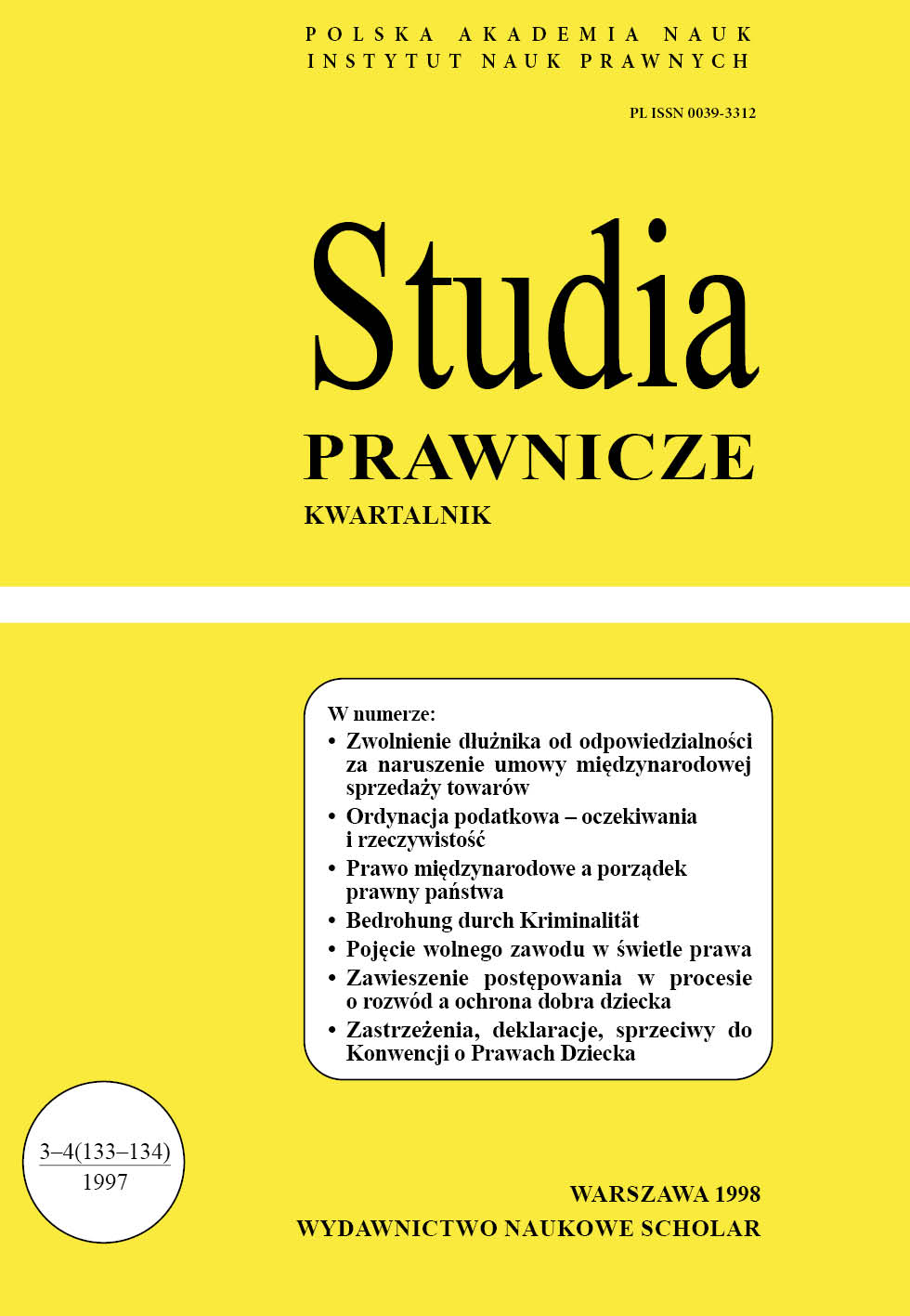Ordynacja podatkowa - oczekiwania i rzeczywistość
Tax Ordinance – expectations and reality
Author(s): Andrzej GomułowiczSubject(s): Law, Constitution, Jurisprudence
Published by: Instytut Nauk Prawnych PAN
Keywords: tax ordinance; legislation; changes in law
Summary/Abstract: The incorporation into the text of the Tax Ordinance of the existing provisions of the Tax Obligations Act and those contained in the Administrative Procedure Code, while making editorial amendments that are relatively modest, gives rise to the reflection that such a procedure did not require the issuance of the Tax Ordinance. Moreover, legislative solutions are not always correct and in line with the principles of legislative rationality. The defects of the detailed solutions are derived from the weakness of the entire concept of the creation of the Tax Ordinance, therefore, one has to agree with the allegation of the incompatibility of the provisions of the Ordinance with the Constitution of the Republic of Poland and points to the elements of disharmony of the Ordinance, the frailty and incompleteness of particular legal institutions, as well as axiological inconsistencies. In tax doctrine, it has been pointed out that one of the conditions for proper tax law-making is the skilful separation of tax and civil law issues. The enactment of tax law only from the point of view of the state’s fiscal interests (as indicated by the Tax Code) generally leads to significant restrictions on the functioning of civil law institutions in economic life. Meanwhile, there is no general regulation in the Tax Ordinance that reflects the attitude to private law. It would be expected to address issues such as, for example, the admissibility of the use of analogy in tax law or the admissibility of the use of definitions (in their absence in the Ordinance or in specific tax laws) from other branches of law. R. Mastalski is right when he formulates the criteria that the Tax Ordinance must meet, namely, he states that it is not only about the norms concerning certain institutions of general tax law (tax claims of the tax procedure), but also about the “basic principles of the functioning of tax law drawn, as it were, before the parenthesis of the system of this law”. It demands comprehensive solutions in terms of both the choice of content and versatility in its coverage. Comprehensive treatment requires appropriate systematics (ordering of substantive and procedural issues); this should be achieved through their proper separation, clarity of the legal construction of individual institutions and their substantive interrelationships, terminological precision, internal consistency, i.e. features to which the Tax Ordinance in its current form is quite far from.
Journal: Studia Prawnicze
- Issue Year: 1997
- Issue No: 3-4
- Page Range: 33-50
- Page Count: 18
- Language: Polish

